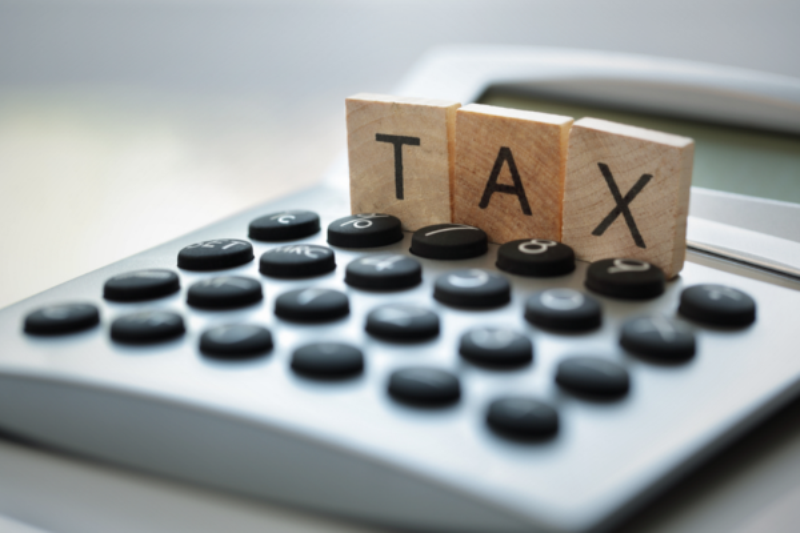The COVID-19 pandemic has forced the world’s economies to stall. While some individual companies have experienced unprecedented booms, the World Economic Forum predicts that global growth in 2020 will fall by 4.9%.
Such a blow to the economy has presented a major challenge for governments and businesses alike when it comes to tax collection and compliance. Already the International Monetary Fund (IMF) forecasts that most countries around the world will experience a significant decline in tax revenue because only a portion of brick-and-mortar sales have transitioned online and others failed to materialize altogether.
The pandemic-induced tax revenue loss will be especially challenging for African countries, where already almost 86 % of people work in the informal economy, including millions of small business owners and traders who are struggling with tax compliance, as well as now dealing with the pandemic. Despite seeing unprecedented economic growth and political maturity over the last few decades, tax revenue across the sub-Saharan region has been declining for the last 15 years. Due to illicit financial flows, which include tax avoidance, corruption, and theft, Africa loses almost $89bn a year—around 3.7% of the total continent’s GDP.
Inefficient tax collection systems
But tax avoidance is a two-sided problem. According to Mindaugas Glodas, CEO at NRD Companies, a global IT and consulting group of companies specializing in governance and economic digital infrastructure, such a level of under-declaration of sales in Africa comes as no surprise given the fact that the current tax collection systems and policies are ineffective, creating significant barriers for businesses to comply with tax obligations.
“For example, business owners might be required to have a dedicated fiscal device needed to record tax information, which, especially for small businesses, is too expensive to purchase and maintain,” said Mr Glodas. “Such an obligation also sets up an entry barrier for SMEs due to their already scarce funds. This cannot continue because tax revenue is crucial when it comes to ensuring essential social and economic benefits like pensions, healthcare, and education. As governments start to draw up post-pandemic recovery plans, it is imperative that they address the ineffectiveness of tax collection systems and policies and lend a hand to businesses themselves.”
So far, businesspeople in African countries, which have introduced fiscal requirements for point-of-sale, have been using cash registers with Electronic Fiscal Devices (EFDs) or a specific type of ECR, online cash registers (OCRs). However, ECRs have a variety of risks related to the integrity of transactions and reporting, as well as are out of step with current demands. On top of that, they require to be equipped with a fiscal device—a luxury for the majority of African businesses. While OCRs are generally a better option, the current generation also needs a fiscal device.
An all-encompassing solution
To address these shortcomings, NRD Companies has developed Virtual Fiscal Device Management System (VFDMS)—a new-generation online cash registry system, deployed in tax authorities, and which is capable of transmitting a continuous real-time flow of nationwide data critical for assessing tax compliance without the need for a fiscal device. First of its kind in the world, VFDMS can be installed on the site of tax administration and retailers can connect to it via computers or smartphones. Tax administrators can impose offline data collection rules and manage the behaviour of the apps used by the taxpayers, e.g. to allow or disallow offline capability and to set the maximal period of offline operation.
“VFDMS can be a decisive factor for small businesses as it minimizes upfront investment and can be operated simply through an app,” said Mr Glodas. “Together with the necessary policies, such a system is capable of reducing illegal activities and increasing tax compliance. Also, the real-time flow of tax data helps governments to plan the budget accordingly.”
NRD Companies is already putting the finishing touches on the first-ever implementation of VFDMS in Africa in Zanzibar, where tax evasion has been a significant problem. The new system will be used for issuing fiscal digital receipts, signed by a server in real-time, for every online transaction taxpayers make. The Zanzibari government reckons this move will help optimize revenue collection by promoting voluntary compliance and public confidence through effective, efficient, transparent, and fair administration of tax laws, at the same time reengineering business processes and modernizing technology.
VFDMS’s digital capabilities are also integral considering the fact that the world is becoming increasingly digitized. The World Economic Forum predicts that 70% of new value created over the next decade will be based on digital business models, thus leading to increasing online sales, which can be operated through VFDMS as well. With e-commerce on the rise, African countries might face another challenge of collecting taxes, only this time on digital trade.

 Forex2 weeks ago
Forex2 weeks ago


 Naira1 week ago
Naira1 week ago
 Naira4 weeks ago
Naira4 weeks ago
 Company News4 weeks ago
Company News4 weeks ago




 Naira1 week ago
Naira1 week ago




 Naira3 weeks ago
Naira3 weeks ago
 Billionaire Watch1 week ago
Billionaire Watch1 week ago




 Naira6 days ago
Naira6 days ago






















